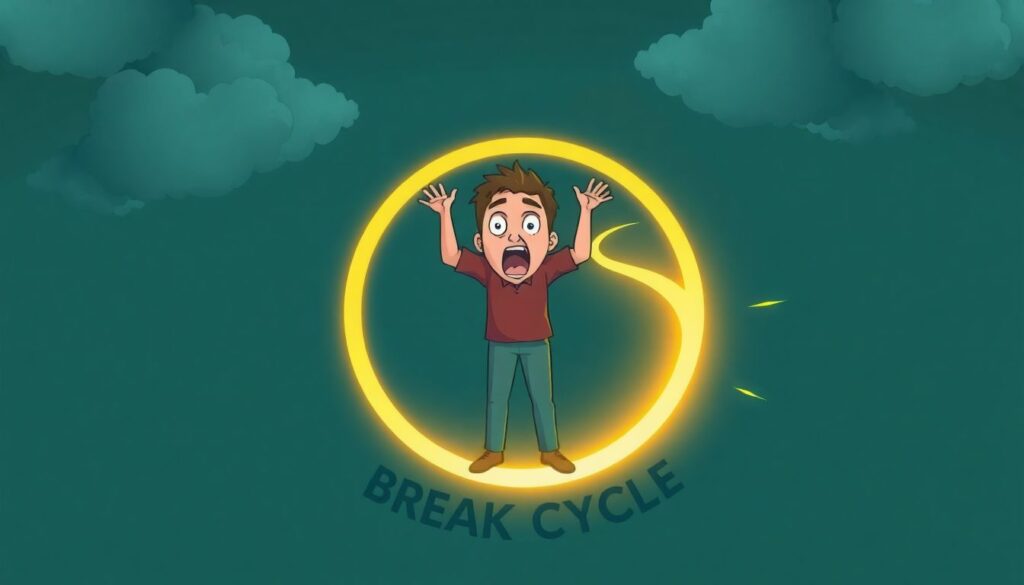Introduction: The Pain of Repeating Money Mistakes

Have you ever sworn you’d stick to a budget… only to overspend again the same week?
Promised yourself you’d check your bank balance… then avoided it for days or weeks?
Paid off a debt… and somehow found yourself right back where you started?
You’re not alone.
Millions of people repeat the same financial mistakes—even smart, capable, well-intentioned people. And the reason isn’t laziness, lack of discipline, or not knowing the “right” financial advice.
According to Money Habits Revealed by Marcus Dane, the root cause is psychological. It’s emotional. It’s behavioral. And it’s deeply human.
The book explains that recurring financial mistakes aren’t signs of failure—they’re signs of internal patterns we haven’t yet understood or healed. Dane writes that procrastination, avoidance, stress behaviors, and emotional triggers are “deeply wired responses shaped by fears, beliefs, and past experiences.”
Understanding these emotional drivers is the first step toward breaking the cycle for good.
Today, we’re diving into the psychology behind repeated financial mistakes—and how to escape the loop.
The Real Reason You Repeat Financial Mistakes
Traditional financial advice assumes people make money decisions rationally—budget in, results out. But as Dane explains early in the book:
“Our minds are not logical calculators. We are beautifully, frustratingly human—wired for emotion, shaped by stories, influenced by culture, family, and even fleeting childhood moments.”
This means your money decisions are shaped far more by your psychology than by math.
Let’s break down the biggest psychological forces behind repeated financial mistakes.
1. The Self-Sabotage Loop
Financial self-sabotage is incredibly common. You know what to do… and yet you find yourself doing the opposite.
Why?
Because self-sabotage brings temporary emotional relief, even at the expense of long-term results.
In Money Habits Revealed, Dane describes this cycle clearly:
- Unopened bills stare at you
- Anxiety rises
- You avoid them
- Anxiety decreases—temporarily
- But the long-term consequences grow worse
This is the “Relief Loop.”
Why the brain prefers relief over progress
Your brain is wired to prioritize immediate comfort (relief) over long-term growth.
It’s not personal failure—it’s human biology.
Neuroscience shows that avoiding discomfort triggers a dopamine release, which reinforces the avoidance behavior. So:
- Avoiding your bank balance feels good → you keep avoiding
- Paying late fees feels bad → but less immediate than avoidance
- Buying something impulsively feels good → you repeat it
Eventually, you find yourself stuck in patterns you never chose.
2. Present Bias: The Silent Saboteur
One of the most powerful forces behind repeated mistakes is present bias, which Dane explains as the tendency to overvalue short-term feelings over long-term benefits.
A few examples:
- Buying something to feel good today even if it ruins your budget tomorrow
- Putting off debt repayment today even if it grows tomorrow
- Skipping savings today even though you want financial security next year
Present bias doesn’t just affect spending—it affects:
- procrastination
- emergency fund avoidance
- ignoring bills
- fear of investing
- chronic saving struggles
This psychological bias shows up heavily in the book’s chapter on procrastination:
“Present bias plays a central role… someone might delay paying a bill for a week, granting relief today while building more trouble for tomorrow.”
The math doesn’t matter—emotion wins.
3. Avoidance Behaviors (The “I’ll Deal With It Later” Trap)
Avoidance is one of the most destructive—and common—financial patterns. And ironically, the more capable and intelligent someone is, the more creative their avoidance strategies become.
Avoidance can look like:
- Not opening bills
- Ignoring debt
- Not updating budgets
- Not checking bank balances
- “I’ll start fresh next month”
- Avoiding conversations with partners
- Ignoring taxes or long-term planning
The reason? Money often triggers shame, fear, overwhelm—or memories of financial stress.
As Dane writes:
“This hesitation isn’t about being lazy. It’s part of a hidden pattern… where the very actions meant to help us succeed end up holding us back.”
Avoidance temporarily lowers anxiety… but increases long-term stress.
And the cycle continues.
4. Emotional Triggers That Override Logic
Humans spend emotionally—more than we realize.
Triggers include:
- Stress → shopping
- Loneliness → ordering food
- Comparison → lifestyle purchases
- Boredom → online shopping
- Celebration → overspending
- Anxiety → putting off bills
In Money Habits Revealed, Dane gives vivid examples like a person who shops after hard days at work or when scrolling social media triggers envy or desire.
Once you understand these emotional triggers, everything changes.
5. Money Scripts That Keep You Stuck
Repeating financial mistakes is often the result of unconscious beliefs—or money scripts—formed in childhood.
These scripts run silently:
- “Money is stressful.”
- “I’m bad with money.”
- “Spending makes me feel better.”
- “People like me don’t get ahead.”
- “I shouldn’t talk about money.”
- “It’s safer not to look.”
These inherited beliefs create predictable behaviors that repeat until you rewrite them.
Why Knowing Better Isn’t Enough
One of the most frustrating parts of repeated mistakes is the awareness:
“I KNOW what I should be doing… so why can’t I just do it?”
Answer:
Because your emotional brain is overpowering your logical brain.
In Chapter 2, Dane explains the two systems of decision-making: fast, emotional “System 1” and slower, logical “System 2.” When emotional triggers fire, System 1 takes over.
You don’t fail because you lack discipline.
You struggle because your emotional system keeps winning.
So let’s talk about how to change that.
How to Break the Cycle (Step-by-Step Transformation)
Here’s the part you’ve been waiting for:
How to stop repeating financial mistakes once and for all.
Below is a science-backed, psychologically grounded framework adapted from the transformation tools in Money Habits Revealed.
STEP 1: Identify Your Pattern Without Shame
Patterns lose their power when brought into the light.
Ask yourself:
- What mistake do I repeat most?
- When does it happen?
- What emotion or trigger usually comes first?
Awareness is transformation’s starting point.
STEP 2: Find the Emotional Reward Behind the Mistake
Every repeated behavior gives you something:
- Avoiding bills → removes anxiety temporarily
- Overspending → boosts mood
- Procrastination → brings relief
- Ignoring finances → protects you from bad news
- Saving too little → lets you enjoy now
Your brain isn’t sabotaging you—it’s protecting you incorrectly.
STEP 3: Create a “Pattern Interrupt”
Interrupt the old trigger → behavior → reward cycle.
Examples:
- When stressed → take 5 slow breaths instead of shopping
- When tempted to avoid → set a 2-minute timer and begin
- When about to check out → wait 24 hours
- When fearful of bills → open one envelope only
Small disruption = major change.
STEP 4: Replace the Behavior with a Healthier Reward
Your brain needs a new dopamine source.
Examples:
- Instead of online shopping → take a walk
- Instead of avoidance → check one account and celebrate
- Instead of overspending → put $10 into a savings “victory jar”
Money habits are emotional habits.
Swap the emotion, and the habit changes.
STEP 5: Build a Micro-System That Supports You
Dane emphasizes throughout the book that sustainable change requires systems, not willpower.
He writes about how small, structured steps build long-term consistency:
“Lasting change is not a one-time job… every new skill gained brings sustainable freedom a step closer.”
Systems you can build today:
- Automate savings
- Schedule weekly money check-ins
- Use spending categories aligned with your values
- Set phone reminders for financial tasks
- Make a simple rule: e.g., “Review accounts every Friday”
Systems make the new behavior the default behavior.
How Your Life Changes When You Break the Cycle
Imagine:
- No more shame spirals
- No more hiding from your finances
- No more repeating old patterns
- No more guilt around spending
- No more fear of looking at your accounts
- No more self-blame
Breaking the cycle means reclaiming your financial autonomy—and your peace of mind.
Ready to Finally Change Your Money Habits for Good?
If you’re ready to stop repeating old patterns and transform your financial behavior from the inside out, Money Habits Revealed is your next step.
It dives deeper into:
- emotional triggers
- financial anxiety
- money scripts
- procrastination
- avoidance cycles
- long-term habit building
- psychological tools for financial success
And it does it in a compassionate, human-first way.
👉 Start transforming your financial patterns today:
https://www.amazon.com/dp/B0G1SXVB5T/




